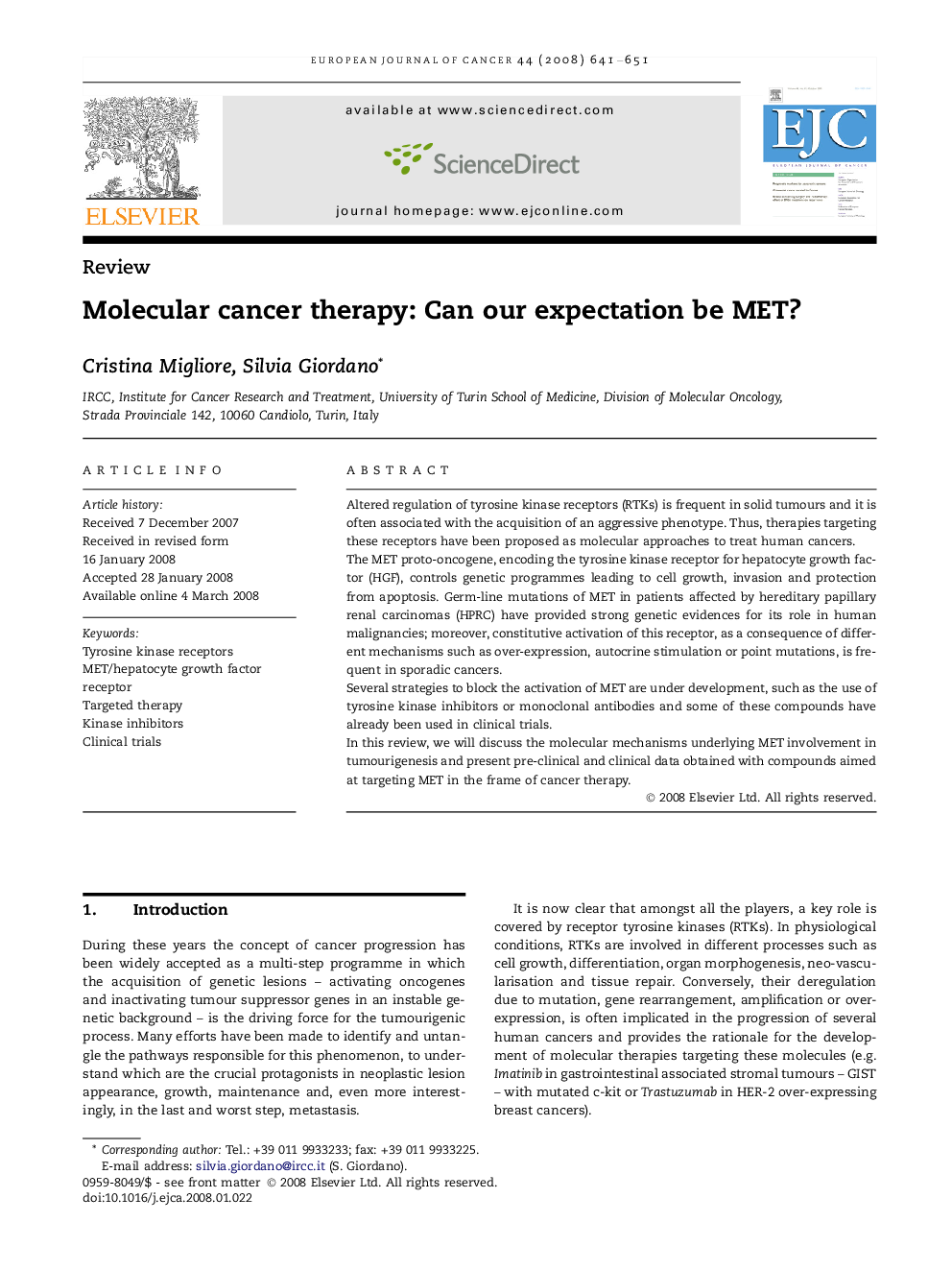| Article ID | Journal | Published Year | Pages | File Type |
|---|---|---|---|---|
| 2124265 | European Journal of Cancer | 2008 | 11 Pages |
Altered regulation of tyrosine kinase receptors (RTKs) is frequent in solid tumours and it is often associated with the acquisition of an aggressive phenotype. Thus, therapies targeting these receptors have been proposed as molecular approaches to treat human cancers.The MET proto-oncogene, encoding the tyrosine kinase receptor for hepatocyte growth factor (HGF), controls genetic programmes leading to cell growth, invasion and protection from apoptosis. Germ-line mutations of MET in patients affected by hereditary papillary renal carcinomas (HPRC) have provided strong genetic evidences for its role in human malignancies; moreover, constitutive activation of this receptor, as a consequence of different mechanisms such as over-expression, autocrine stimulation or point mutations, is frequent in sporadic cancers.Several strategies to block the activation of MET are under development, such as the use of tyrosine kinase inhibitors or monoclonal antibodies and some of these compounds have already been used in clinical trials.In this review, we will discuss the molecular mechanisms underlying MET involvement in tumourigenesis and present pre-clinical and clinical data obtained with compounds aimed at targeting MET in the frame of cancer therapy.
